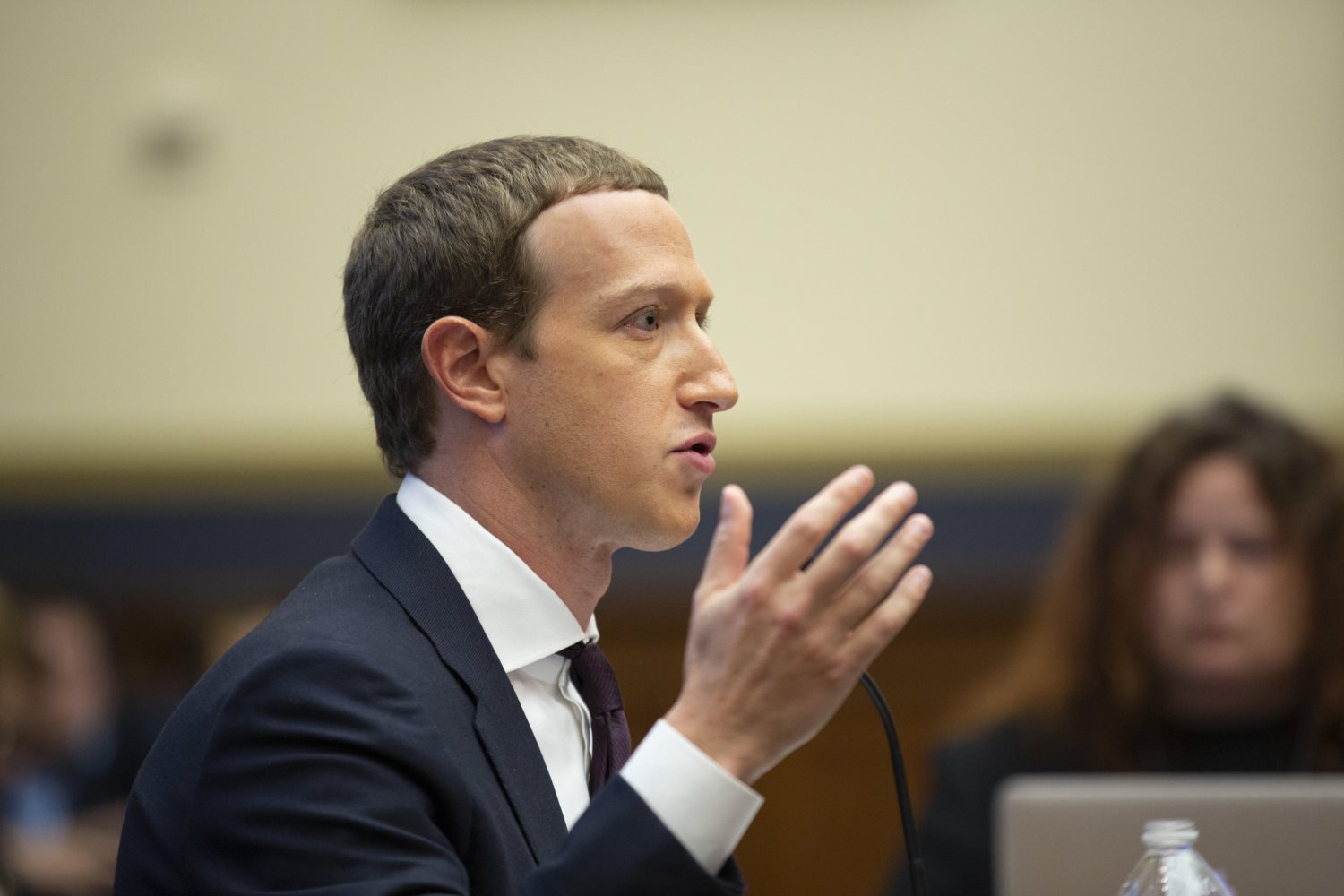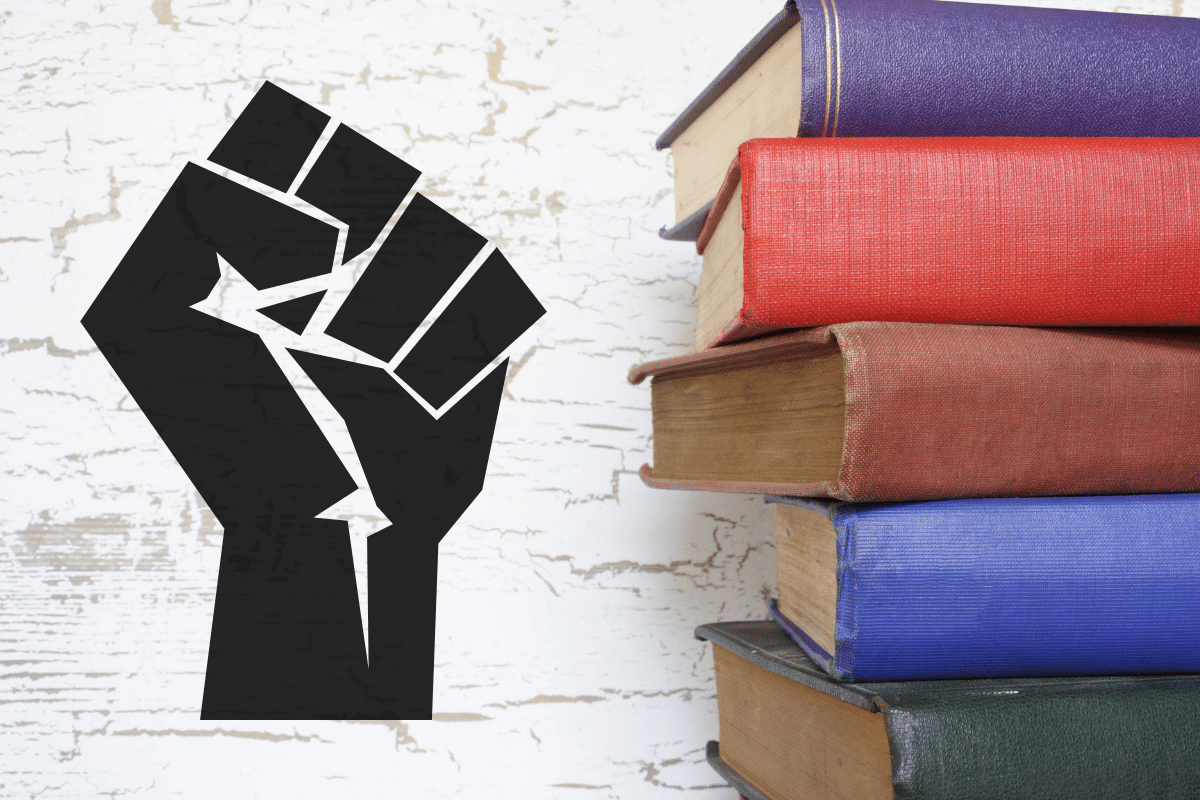Activism
Mark Zuckerberg and the Changing Civil Rights Movement
The truth is therefore that Mark Zuckerberg’s reading of civil rights history with respect to its relationship to free speech is closer to the mark than that of many who have inherited the mantle of the movement.

On October 17, 2019, defending Facebook’s generally hands-off policy with respect to regulating the content of political advertisements, CEO Mark Zuckerberg took to the podium at Georgetown University and delivered an eloquent defense of free expression. In his address, he linked speech to the historic pursuit of justice for the powerless, and made reference to his experience as a student immediately following the invasion of Iraq. This fed his later conviction that open forums for discourse are essential to the advocacy of political causes:
Back then, I was building an early version of Facebook for my community, and I got to see my beliefs play out at smaller scale. When students got to express who they were and what mattered to them, they organized more social events, started more businesses, and even challenged some established ways of doing things on campus. It taught me that while the world’s attention focuses on major events and institutions, the bigger story is that most progress in our lives comes from regular people having more of a voice.
This is a humble and emphatically American sentiment, coming though it does from one of the world’s foremost tech billionaires. The idea that regular people, free to speak truth to power and cultivate their own beliefs, become a force for social progress is arguably the cornerstone of the American experiment. Zuckerberg went on to offer a brief overview of American civil rights history, noting that Frederick Douglass referred to free expression as “the great moral renovator of society,” and quoting one civil rights leader as saying that “nearly all the cases involving the civil rights movement were decided on First Amendment grounds.” Because civil rights protests were themselves examples of protected speech, the movement was permitted to flourish and grow.
But Zuckerberg’s argument did not impress NAACP president Sherrilyn Ifill, who wrote, “The civil rights movement was not fought to vindicate free speech rights under the First Amendment. It was a fight to fulfill the promise of full citizenship and human dignity guaranteed to black people by the Fourteenth Amendment.” Other critics, including comedic actor Sacha Baron Cohen, have assailed Zuckerberg for a laissez faire policy towards political content that they contend makes the platform an unchecked megaphone for particularly fascist disinformation (“If Facebook were around in the 1930s,” Baron Cohen claimed, “it would have allowed Hitler to post 30 second ads on his ‘solution’ to the ‘Jewish problem.’”)
But Ifill’s criticism of Zuckerberg’s historical position on the relevance of free speech to the cause of social justice constitutes an elemental disparaging of open discourse itself as a means (perhaps the means) by which oppressed people may leverage the truth to pursue justice. Her claim that the civil rights movement was (at least explicitly) more concerned with defending the Fourteenth Amendment than it was the First Amendment is not wrong. Yet the civil rights movement of the 1950s and ’60s was deeply rooted in the foundational liberal values that undergird American democracy. Rev. Martin Luther King, Jr. and thousands of others surely fought to push America to live up to the Fourteenth Amendment. But they did so not only by means of the First Amendment, but also by their fidelity to freedom of speech as an ideal.
It is an ideal with deep roots in the history of the movement. Foot-soldiers in the South were trained in civic literacy at “Citizenship Schools,” modeled on workshops pioneered by Septima Clark designed to educate African-American adults to pass the literacy tests that were preventing them from voting in the Jim Crow South. The workshops emerged as incubators of democratic values that imbued their participants with an active sense of patriotism and commitment to the realization of America’s founding principles.
That support of free speech in principle has waned in the modern civil rights movement may seem surprising at a glance. But the reason is understandable. King, and other dissidents in American history besides, strove to introduce new voices into a conversation dominated by oppressive points of view. In this struggle, freedom of speech was an equalizing force. Therefore Sherillyn Ifill, Bernice King (daughter of Dr. King and a critic of Zuckerberg’s) and others, are right to note that the same First Amendment that allowed King and others to speak truth to power also allowed their enemies to spread misinformation. But that was a circumstance that the leaders of the movement at that time would have taken for granted. Part of King’s civic and religious conviction was that, over time, truth always has the advantage in a fair contest of ideas. Hence their goal was to make the contest of ideas fair.
For many in today’s social justice movement that is no longer the goal. The activists of our time enjoy influence over powerful institutions in American life—the academy, the business world and the means of communication, including social media companies—of a kind that King could have only dreamed. So, from the vantage point of today’s activists, a principled commitment to free speech is risky—it allows subversive and hateful speech a place in public discourse. The thinking seems to be that if only we could succeed in pushing the administrators of social media platforms to shun and suppress the purveyors of such speech, we could eliminate their dangerous views from the public square.
This was hardly something that could have been achieved by similar activists in the 1960s. Thus the culture of the time did not select for leaders who thought that way. But with real institutional influence, it is at least conceivable today that civil rights activists could push campus culture, politicians, and media to banish racist and regressive points of view in a way that—it is tempting to believe—would be less dangerous than the consequences of letting such viewpoints be voiced. Freedom of speech was an equalizing force in favor of social justice a generation ago. But this same liberty could serve as an equalizing force in favor of white supremacy today. On this view, it is now sensible for us to exchange some of our commitment to freedom of speech in principle for the power to banish hateful views from public view in practice.

This represents a break with the culture of social justice activism that guided the movement in the past. The truth is therefore that Mark Zuckerberg’s reading of civil rights history with respect to its relationship to free speech is closer to the mark than that of many who have inherited the mantle of the movement. The ideal of freedom of speech is woven deeply into the history of the civil rights movement. We risk breaking faith with the spirit of that movement by compromising that ideal. On the night before he died, Dr. King made the connection plain.
If I lived in China or even Russia, or any totalitarian country, maybe I could understand some of these illegal injunctions. Maybe I could understand the denial of certain basic First Amendment privileges, because they hadn’t committed themselves to that over there. But somewhere I read of the freedom of assembly. Somewhere I read of the freedom of speech. Somewhere I read of the freedom of press. Somewhere I read that the greatness of America is the right to protest for right. And so just as I say, we aren’t going to let any injunction turn us around. We are going on.
That ideal is a touchstone we should not abandon. We should not lose sight of the positive power of free speech to advance social progress. In his address at Georgetown, Mark Zuckerberg pointed to this positive power: “You can’t impose tolerance top down,” he said. “It has to come from people opening up, sharing experiences, and developing a shared story for our society that we all feel like we’re a part of. That’s how we make progress.”






